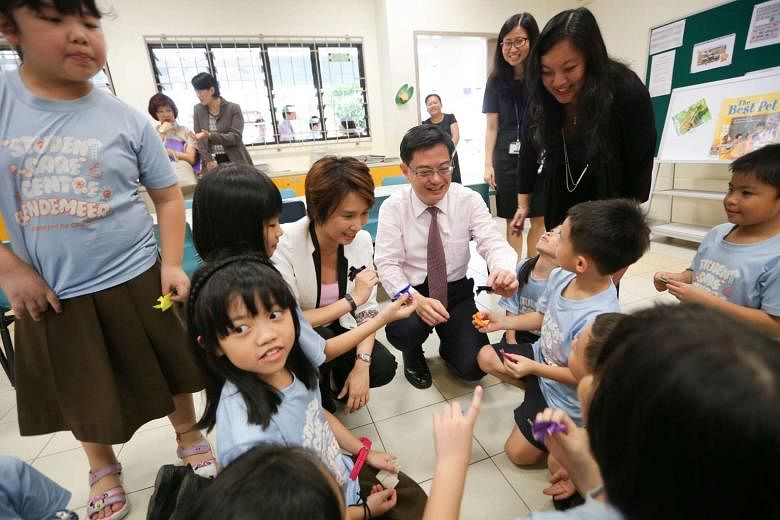The four self-help groups here will set up a joint venture company to run 30 school-based student care centres, with the first of these expected to be ready next year.
The aim is to better support the holistic development of pupils, especially those from less advantaged backgrounds, by tapping the resources of all the groups.
Most centres are now run by welfare groups or private operators.
The Ministry of Education (MOE) signed a memorandum of understanding regarding this partnership with the Chinese Development Assistance Council (CDAC), Yayasan Mendaki, Singapore Indian Development Association and the Eurasian Association yesterday, at Bendemeer Primary.
Education Minister Heng Swee Keat said the partnership between MOE and the self-help groups is a "strategic one". He said: "By working with the schools, we can design a whole range of innovative programmes that can stimulate the pupils' learning."
School-based student care centres provide supervised after-school care within the primary schools' premises.
Currently, each centre typically enrols about 60 pupils initially, then another 100 pupils or more later. There are at present 114 school-based student care centres, with over 10,000 pupils enrolled.
Three centres are run by self-help groups - two by CDAC and one by Mendaki. Most pupils at these centres are from low-income families with working parents who pay a subsidised fee. In future, these could be among the 30 centres run jointly by the four self-help groups.
Details of how the 30 centres will be funded or staffed are being worked out, but the groups said the partnership could mean a sharing of best practices in the centres.
CDAC deputy executive director Pok Cheng Chong said: "Every group has certain unique strengths that we could pool together, and this will help enhance the programmes offered."
Mr Benett Theseira, president of the Eurasian Association, said: "We've always had a much broader focus beyond education, looking at family support services and community development, so that holistic approach is an area in which we can add value."


